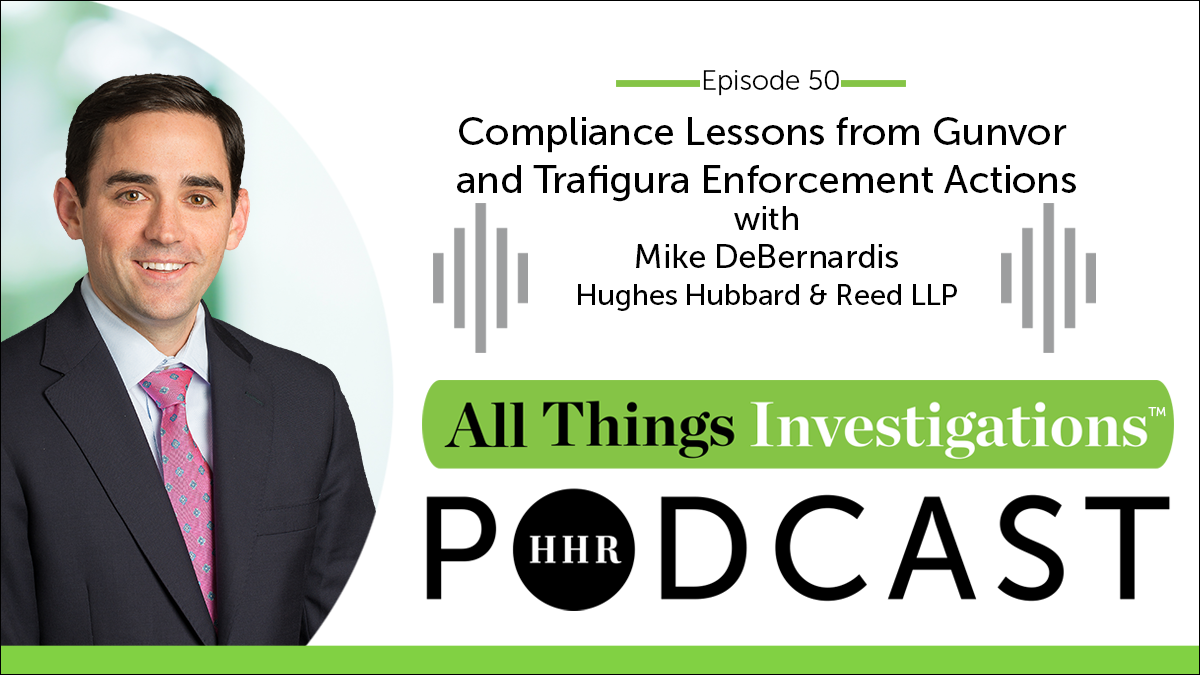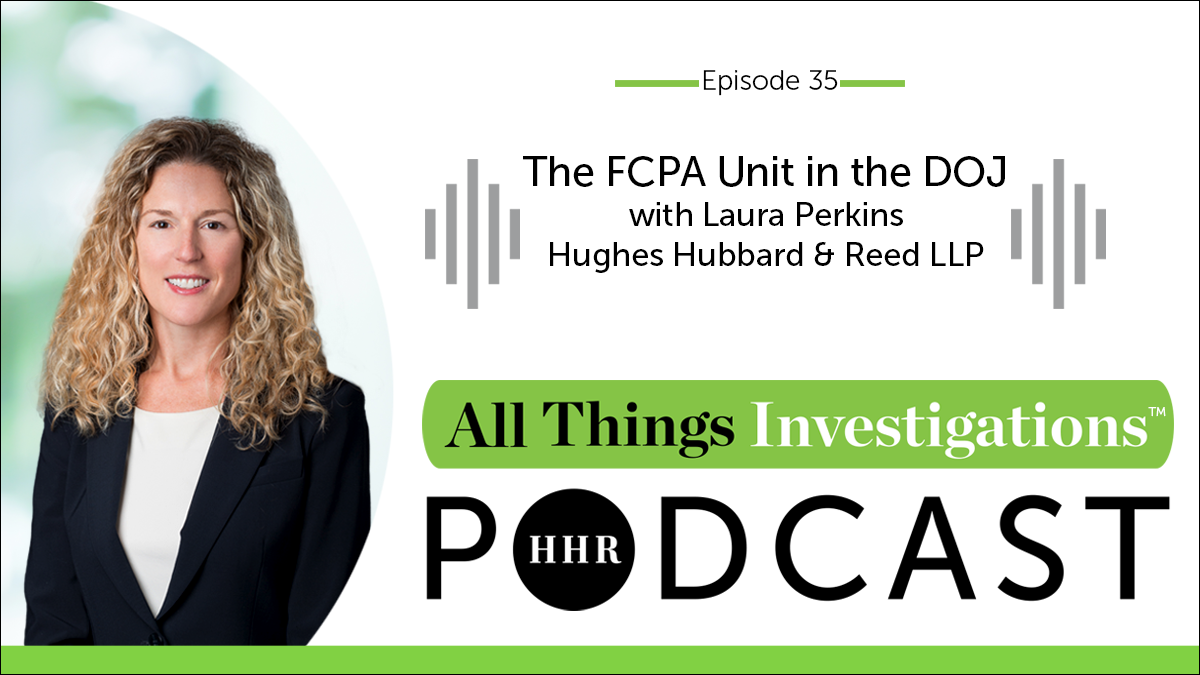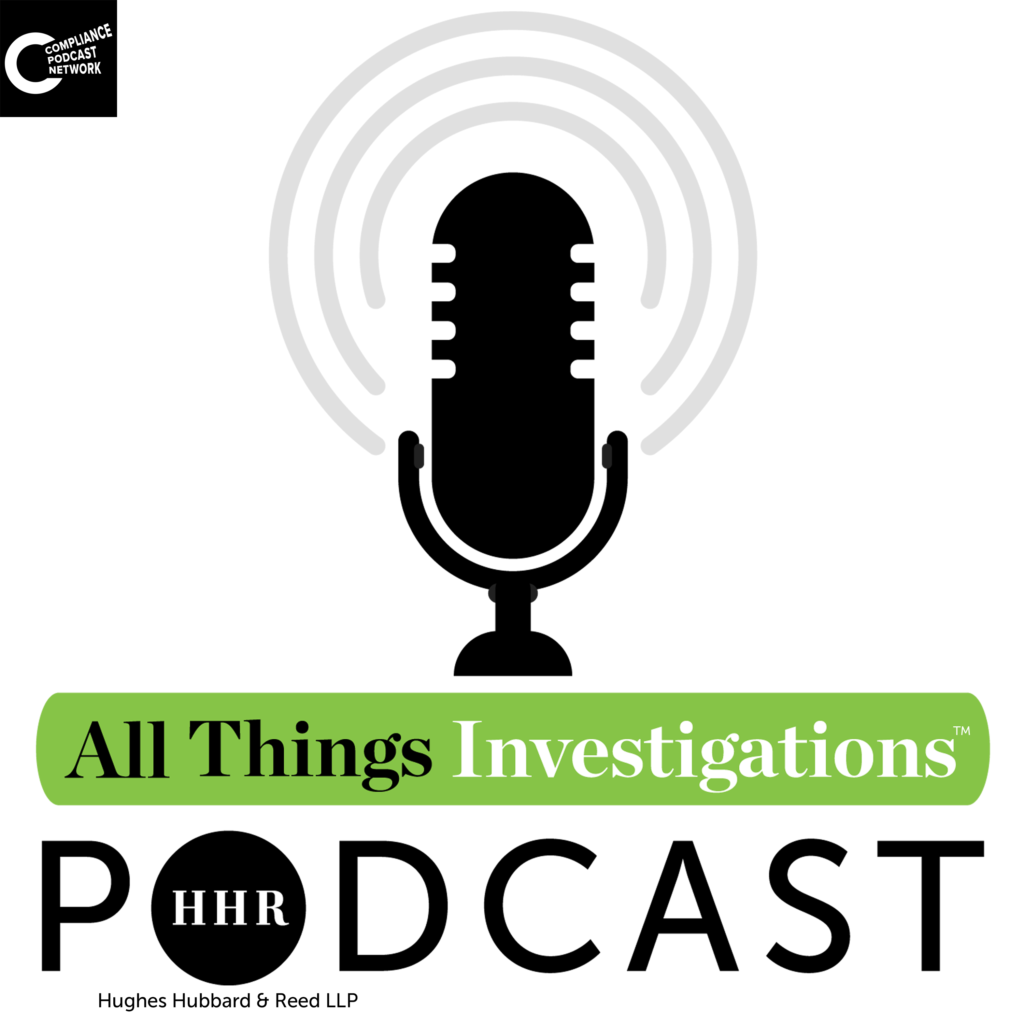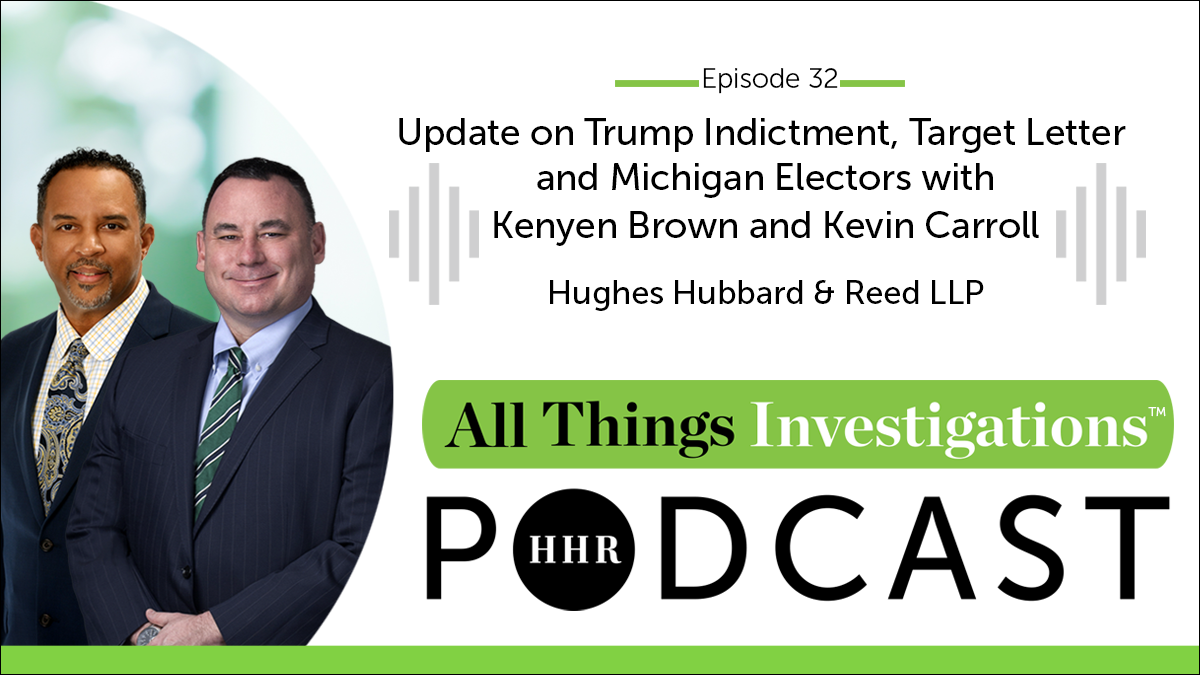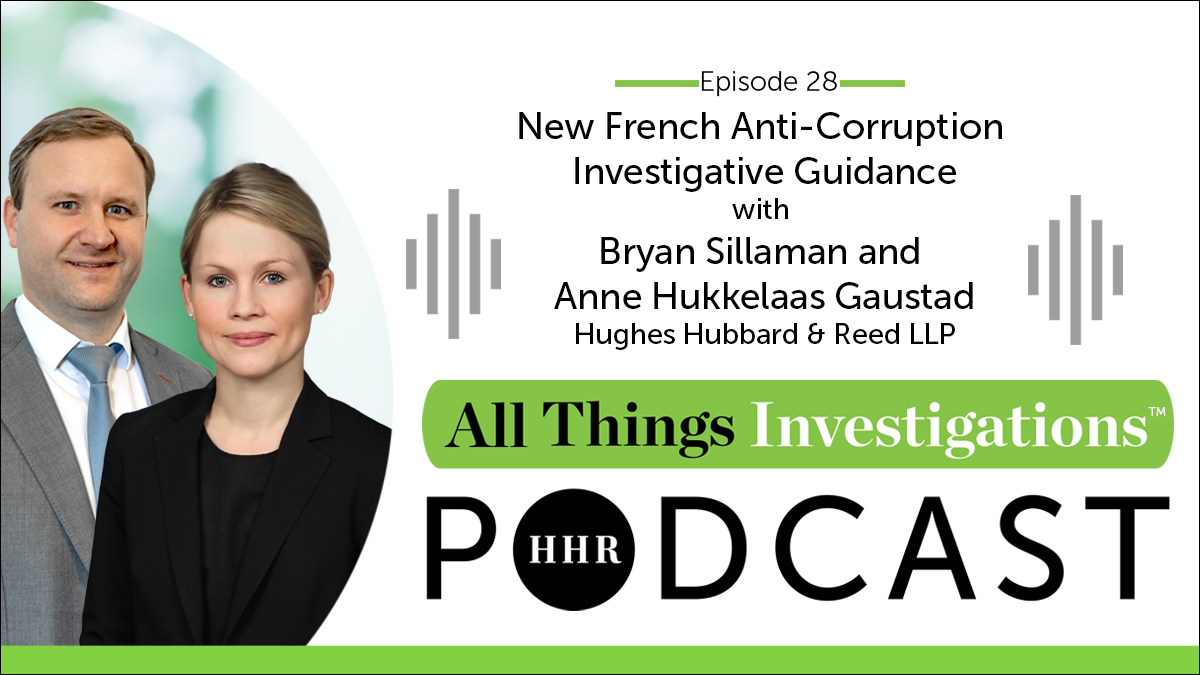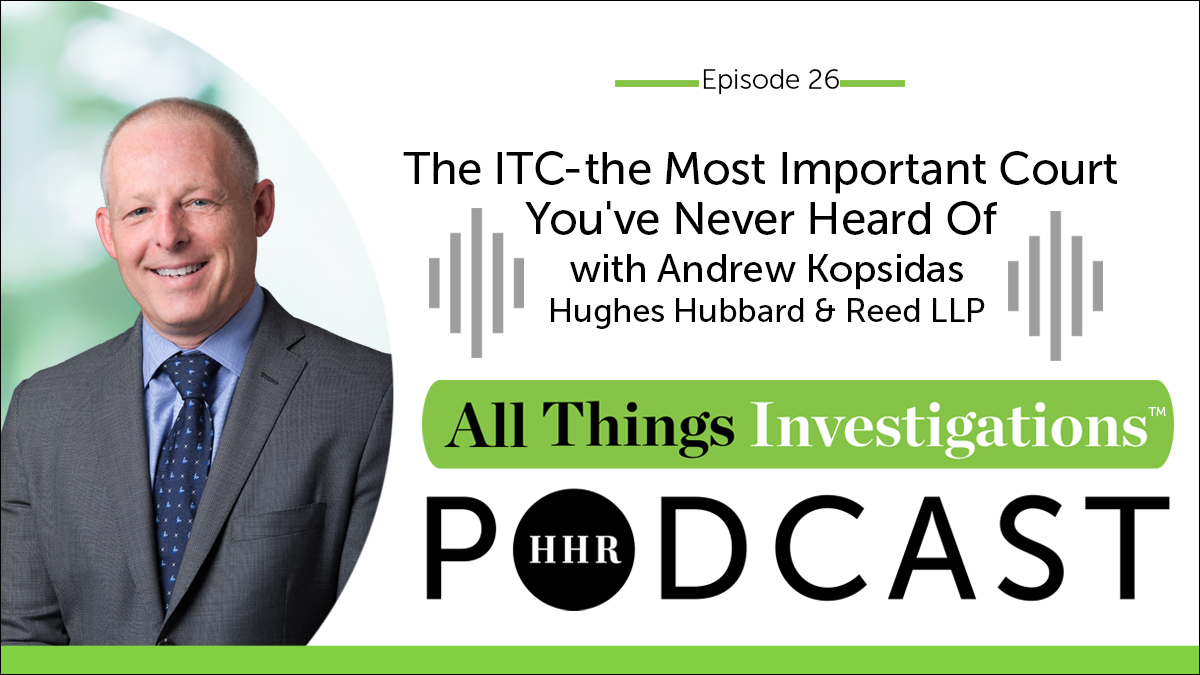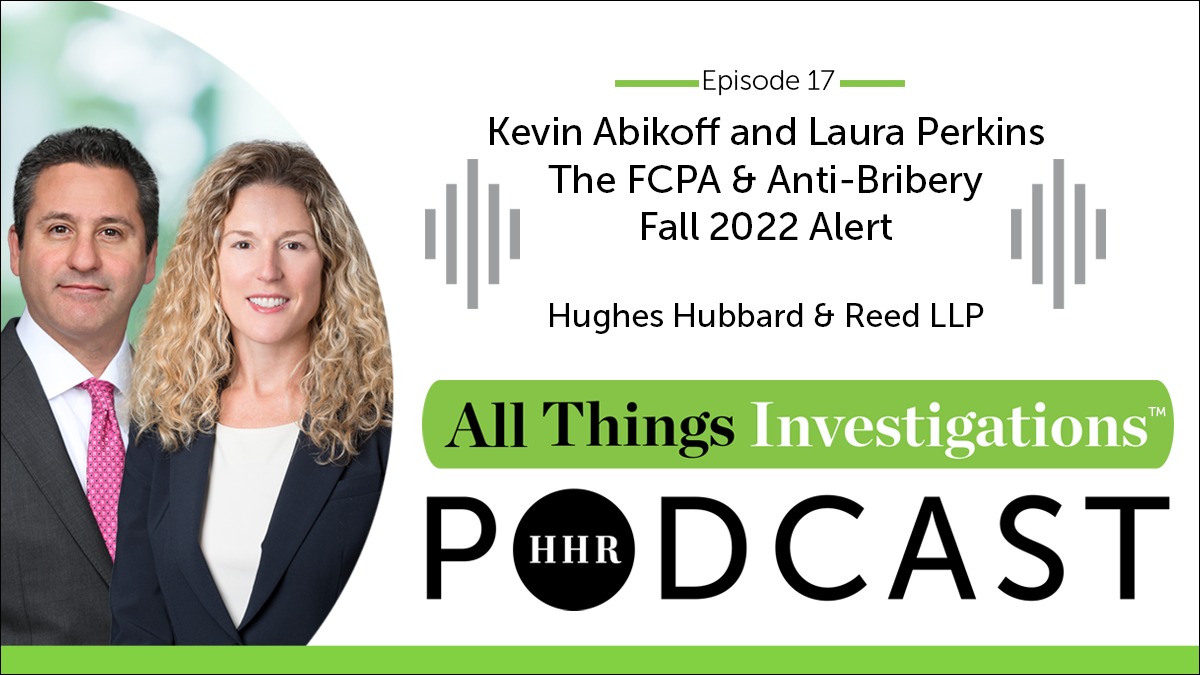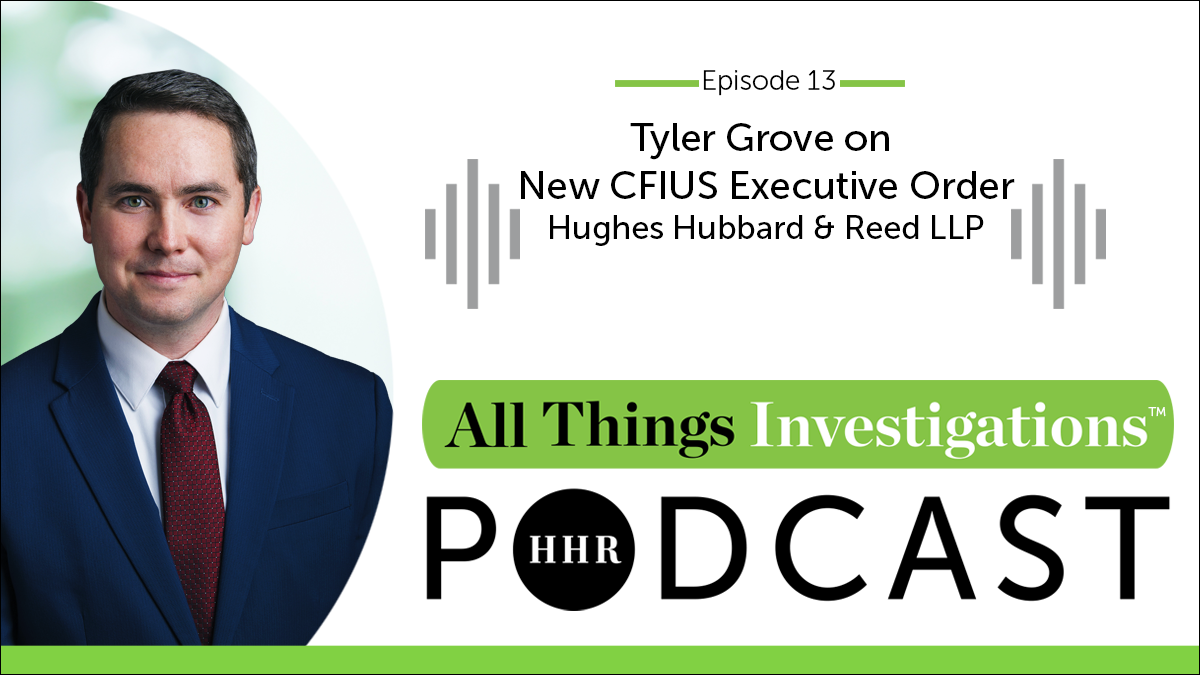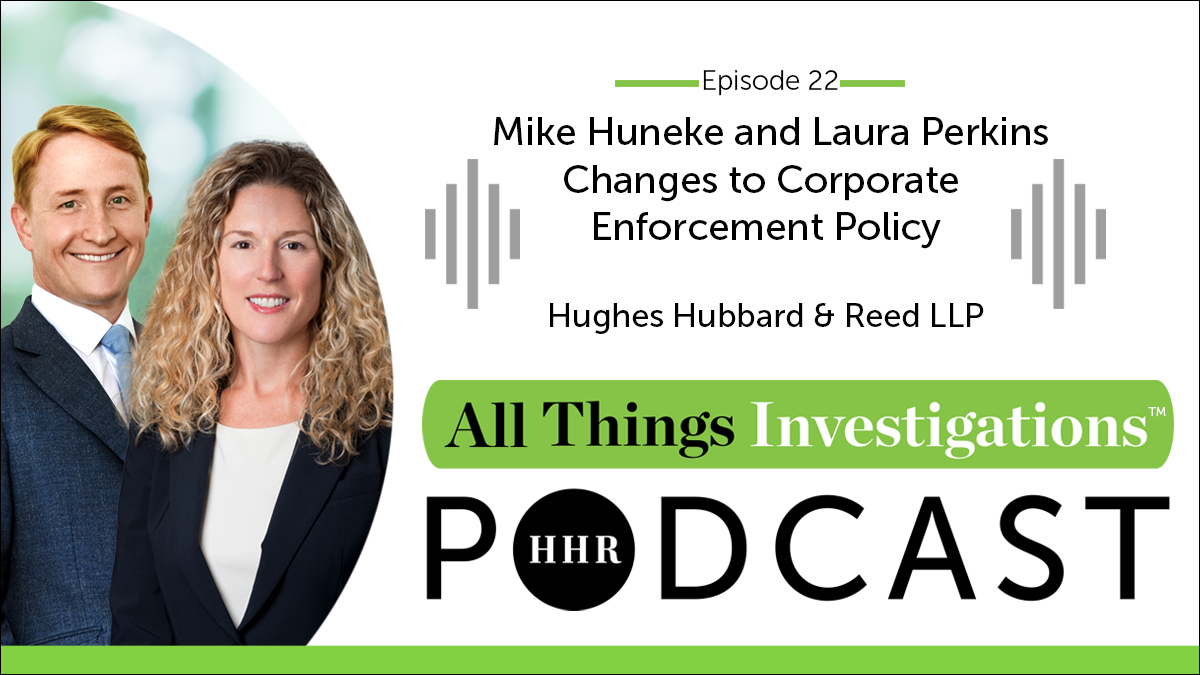
Welcome to the Hughes Hubbard Anticorruption and Internal investigation Practice Group’s podcast, where host Tom Fox and Hughes Hubbard Anticorruption and Internal Investigation Practices Group members delve into the legal issues surrounding white-collar and other investigations, both domestically and internationally. Laura Perkins and Mike Huneke join Tom on this episode to discuss the changes to the Department of Justice’s Corporate Enforcement Policy.
Laura Perkins is the Co-Chair of the Anti-Corruption & Internal Investigations practice group and Co-Managing Partner of the Washington, DC, office at Hughes Hubbard & Reed. Prior to joining the firm, Laura worked for nearly ten years at the Criminal Division of the U.S. Department of Justice, where she served as Assistant Chief of the FCPA Unit and oversaw some of the largest individual and corporate FCPA cases in the U.S. Laura now advises corporations, boards of directors, and senior executives on high-stakes government and internal investigations, crisis management, white-collar criminal defense, and cross-border compliance counseling. She has particular expertise in FCPA/anti-corruption, healthcare fraud, financial fraud, and money laundering cases.
Mike Huneke is a Hughes Hubbard & Reed partner specializing in Anti-Corruption & Internal Investigations. His work involves advising clients on navigating complex international anti-corruption investigations, implementing compliance risk assessments and program enhancements, and conducting due diligence on third parties. He has received several awards, including Lexology’s Client Choice Award for Investigations-USA in 2022 and recognition from Global Investigations Review for his work representing Airbus in resolving bribery and corruption allegations.
Key ideas you’ll hear in this episode:
- The Department of Justice’s corporate enforcement policy has been expanded to a broader range of white-collar crimes. Prosecutors can use it to evaluate possible criminal violations against a company when investigating potential criminal violations. It’s also an unofficial guide for companies to position themselves to avoid prosecution or mitigate consequences.
- The new policy offers a 75% discount for self-reporting, a significant change, and an additional incentive for companies to self-report.
- The discounts offered can stack up quickly, and the range of penalties for non-compliance can be large so the discount can make a marked difference in the amount of criminal penalty under the sentencing guidelines.
- There may still be apprehension about self-reporting, as there is uncertainty about the actual penalties and the reputational harm that can result from a public criminal resolution.
- The definition of extraordinary cooperation is subjective and largely depends on the speed and fulsomeness of the material going from the company to the department.
- Proactive cooperation, being efficient in conducting an internal investigation, and being the one to come to the department with a good rhythm and cadence are all ways to stay on the good side of extraordinary cooperation.
- The decision to self-disclose still depends on whether the company thinks the issue will come out or not and the pros and cons of self-disclosure need to be weighed in a case-specific analysis.
- The more guidance that comes out in speeches, policy memos, or resolutions and declinations, the better companies will be able to evaluate the value of self-disclosure.
KEY QUOTES:
“One of the major [changes to the Corporate Enforcement Policy is] increasing the maximum potential fine reduction a company can get for self-reporting. It’s a further effort by the Department to incentivize self-reporting.” – Laura Perkins
“I think [the updated Corporate Enforcement Policy] does provide a clear incentive for companies to continually maintain a good compliance program and controls that can detect these violations.” – Laura Perkins
“I think the more that the government can show examples of the application of this increased benefit for exceptionally cooperating recidivists and ABB is a great example of that.” – Mike Huneke
“[The Corporate Enforcement Policy is] also the unofficial guide for companies and how they can position themselves best in the event of a problem to avoid prosecution either or to mitigate the consequences.” – Mike Huneke
Resources:
Hughes Hubbard & Reed website
Laura Perkins on LinkedIn
Mike Huneke on LinkedIn


